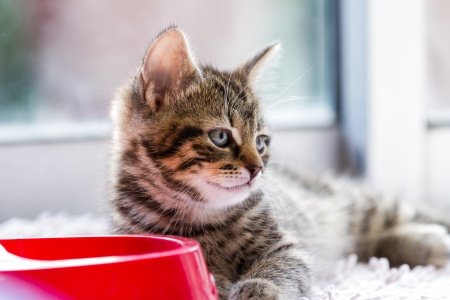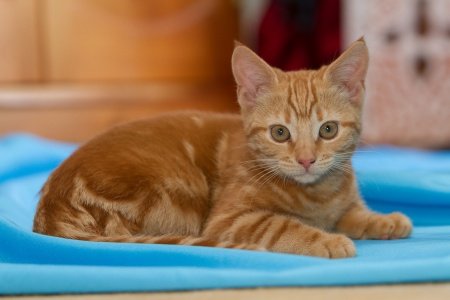Like in humans, asthma in cats is a chronic inflammation of the small passageways in the lungs. Although incurable, it’s generally manageable with the right care and medication, and cats with the condition normally lead happy and active lives.
Asthma in cats is an immunity-related condition and attacks can often be brought on by an allergy or stress. Suspected triggers include pollen, grass, mould, dust mites, tobacco smoke, cat litter, household cleaning products and even some foods.

The condition usually develops between the ages of two and eight years old, with a slightly higher prevalence in female cats. Certain breeds also have a genetic disposition to the condition, such as Siamese and Himalayan cats.
The Basic symptoms Of Feline Asthma are listed below :
.Squatting with shoulders hunched, neck extended and low to the ground
.Overall weakness and lethargy
.Audible throat gurgling
.Increased swallowing
.Blue lips and gums
.Wheezing
.Rapid or difficulty breathing, or increased effort to breathe.
.Persistent cough or gagging, like that triggered by a hairball
.Frothy mucus while coughing
.Difficulty breathing after exertion
.Keeping mouth open while breathing
.Neck extended upwards and gasping for breath

If your cat shows any of the symptoms above, even if they are intermittent, you should speak to your vet straight away. Any cough or wheezing is a serious health issue, as it happens because the lungs are inflamed and are therefore at risk of developing permanent scars on them.
When resting or sleeping a cat will normally take in 24 to 30 breaths per minute – anything over 40 may need medical attention (remember, cats may breathe faster when excited or purring). Snoring or loud breathing when resting is not necessarily a sign of asthma.
How you know if you Cat has a Feline Asthma Attack is your cat will normally start coughing and struggle to stop. They are likely to hold their neck out straight and keep their head close to the ground while coughing, with a wheezing sound audible.
When your cat is having a full blown asthma attack breathing becomes difficult and your pet’s sides will very visibly heave in and out. They will be unable to do anything else, and in extreme cases can start panting, look frightened and start coughing up mucus as well as drooling. If this happens it’s very important to call the vet immediately.
Treatment of feline asthma.
There are two main types of treatment to manage asthma in cats – anti-inflammatory drugs such as corticosteroids to reduce the inflammation which leads to the symptoms, and bronchodilator medication which helps to widen a feline’s air passage when needed. Antihistamine drugs may also be used when cats haven’t responded to other treatments.
Medication is often administered through an inhaler, but can also be given in tablet or injection form. If an inhaler is recommended then ensure you are clear on how to use it, with guidance from your vet. Inhalers used by people work differently from those prescribed for cats because you can’t ask your pet to breathe deeply to trigger release of the drug.
Tests done by the Behavioral Department of the Musuem of Natural History conclude that while a dog's memory lasts about 5 minutes, a cat's recall can last as long as 16 hours.